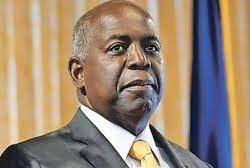
By Licec Bastian
During the Group of 77 (G77) plus China Summit in Havana, Cuba last week, Prime Minister Philip Davis slammed both the Organization for Economic Co-Operation and Development (OECD) and the European Union (EU) for its actions in blacklisting Small Island Developing States (SIDS) like The Bahamas and called on the United Nations (UN) to take the lead role or ultimate authority in settling issues of international tax co-operation and administration.
“Before I close, I want to invite the G77 to support the movement afoot at the United Nations that supports the United Nations as a more inclusive and effective body for international tax cooperation and administration. The United Nations is the appropriate body to design and build a truly equitable and inclusive international tax administration architecture with equal footed representation, an environment of one country, one vote,” the prime minister said.
Prime Minister Davis highlighted the disproportionate impacts of blacklisting by the OECD and the EU on countries of the Global South, those nations regarded as “having a relatively low level of economic and industrial development.
However, these countries get the brunt of the adverse effects and impact of climate change that is largely created by countries from the Global North – industrialised countries that contribute the most to climate change.
Prime Minister Davis has slammed the EU before for what he called indefensible and immoral blacklisting.
“For too long we have all lived in an environment where global tax policy was mandated and designed by the OECD where concepts underpinning the current international tax system prefer the interests of the Global North, that is, OECD members and developed countries, at the expense of small developing countries, primarily black governed former colonies in the Global South, former colonies of those same members of the OECD.
“The arbitrary and discriminatory actions of the OECD and EU have disproportionately affected countries of the Global South, already reeling from actions and impacts of countries from the Global North. The climate crisis is largely created by industrialised countries, many in the Global North. The effect of the climate crisis is felt disproportionately by small developing countries like The Bahamas.
“This is exacerbated by the arbitrary blacklisting of these same vulnerable countries such as The Bahamas from the very same countries that are responsible for the Climate Crisis.
For example, when it comes to insurance, these blacklists result in any remittances from European reinsurers on claims being automatically reduced by at least 25 percent. A significant percentage of the monies owed is punitively retained by the EU. We are thus poorer and less able to rebuild because of the effects of the Climate Crisis,” Prime Minister Davis lamented.
The nation’s leader told the group of 77 they should demand equal treatment.
“We demand the UN be the proper arbiter in tax matters, we demand privileged multilateral organizations like the OECD take your knee off the proverbial necks off countries like The Bahamas, countries of the Global South.
“So, the way forward for the G77 is clear: It’s a path paved with technology, driven by the ambitions and aspirations of our youth, and steered by the collective wisdom of our nations. The G77 also must make a stand in support of equality among countries and governance at appropriate forums such as the UN, an environment where developing countries in the Global South have the same policy impact globally as developed countries of the Global North.
By championing their involvement and ensuring they are at the forefront of decision-making, we are not just investing in our future but ensuring a trajectory of progress, unity, and solidarity,” Prime Minister Davis said.


